BattleDiabetes – 15 percent of TB cases can be attributed to diabetes
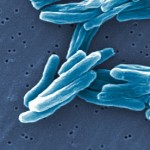
A series of papers published in The Lancet reveal that 15 percent of adult tuberculosis (TB) cases worldwide can be attributed to diabetes.

A series of papers published in The Lancet reveal that 15 percent of adult tuberculosis (TB) cases worldwide can be attributed to diabetes.

A 10-year analysis of patients with type 2 diabetes treated with pioglitazone (Actos) found no statistically significant increased risk of bladder cancer, either with any exposure or for long duration of use.
Princeton researcher Claire Gmachl has announced that her laser glucose monitor meets FDA requirements for accuracy, putting it on par with monitor devices now on the market.

When news about a startling new insight into the cause of Alzheimer’s disease first emerged in 2005, it was highly speculative. But now the evidence for it has become very strong: Alzheimer’s is a form of diabetes, and the name being given to it is type 3.

If you have Type 1 diabetes and are out of the “honeymoon period,” you’ve probably been told that your pancreas has stopped producing insulin. But it turns out that information may be wrong. Many people with Type 1 still produce at least some insulin, even years after diagnosis.

At 12 months, individuals on a low-carbohydrate diet had lost 5.3 kg, while those on a low-fat diet with similar caloric value had lost 1.8 kg, for a mean difference of -3.5 kg, or 7.7 lb, according to Lydia Bazzano, MD, PhD, of Tulane University in New Orleans, and colleagues.

Coffee increases the risk of prediabetes in young adults with hypertension who are slow caffeine metabolisers, according to results from the HARVEST study presented at ESC Congress by Dr Lucio Mos from Italy. People who drank more than three cups of coffee per day doubled their risk of prediabetes.

Inflammation plays a major role in diabetes-associated cardiovascular disease (CVD). There is uncertainty whether diet and physical activity interventions can be successfully integrated into healthcare settings and reduce markers of inflammation and risk of CVD in patients with type 2 diabetes (T2D).

This article brings an extensive summary of all the diabetes technology highlights for August 2014.

“The message is simple: Most supplements do not prevent chronic disease or death, their use is not justified, and they should be avoided,” writes the team of doctors.

The injectable medication, originally prescribed to treat wet macular degeneration ( a disease of the eye that results in a loss of vision at the center of the field of vision when blood vessels abnormally leak fluid into the macula ) was approved for expanded use in late July.
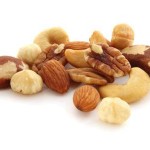
According to a new study, those who regularly eat tree nuts including almonds, cashews, walnuts, pistachios and chestnuts have lower triglyceride levels (less fat in the blood), as well as lower blood glucose.
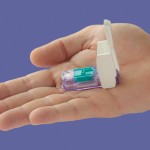
Afrezza®, a dry-powder formulation of recombinant human regular insulin, was recently approved by the US Food and Drug Administration.[1] Afrezza is indicated for use in adults ≥ 18 years of age with type 1 or type 2 diabetes mellitus (T1DM or T2DM); however, in those with T1DM, Afrezza must be used in combination with long-acting […]

We are winding down the summer months and making way for Fall… and there have been so many great posts this past month. Here’s our monthly snapshot of a selection that we found particularly noteworthy (in no particular order).
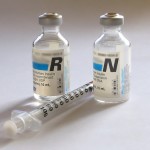
An international team of researchers conducted a trial as part of the multinational EDITION 1 study, comparing the efficacy and safety of new insulin glargine 300 units/mL (Gla-300) with glargine 100 units/mL (Gla-100) in people with type 2 diabetes on basal insulin (≥42 units/day) plus mealtime insulin.

The results of the phase 3 trial – called the Durable Response Therapy Evaluation for Early or New-Onset Type 1 Diabetes, or DEFEND-1 – sends researchers back to the drawing board in an attempt to use otelixizumab, an antibody created specifically to treat type 1 diabetes and other autoimmune diseases, to help maintain insulin function.
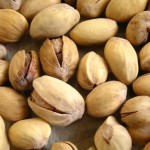
Research has indicated that eating pistachios along with a high-glycemic meal may help lower after-meal blood sugar response, particularly in people with metabolic syndrome. Now, a small new study from Penn State University suggests that these nuts may also improve heart health in people who have Type 2 by reducing the body’s cardiovascular responses to […]
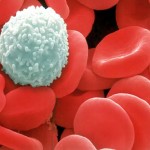
There are many different things that can affect blood glucose. Here is a comprehensive list of all of them.
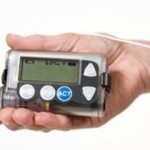
Unfortunately, Medicare policy hasn’t kept up with evolving diabetes technology, and policymakers have left out CGMs from the list of reimbursable diabetes devices. CGMs have fallen into the dreaded Medicare limbo of new devices, according to a recent blogpost from Senator Susan Collins (R-Maine).

When you experience strange pains, mysterious digestive issues, or other unexplained symptoms, you’d hope a trip to the doctor would solve your health woes. But sometimes, doctors have just as much trouble identifying certain disorders and conditions as their patients.